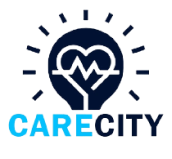World Diabetes Day: Family and Diabetes.

The effects of diabetes span beyond physiological [imbalances in glucose metabolism] and anatomical disturbances [amputations caused by poorly managed foot ulcers]. The patients’ life is affected in its entirety. That is why this year’s world diabetes day tackles the problem from another angle.
The International Diabetes Federation has decided to create awareness on the effects of diabetes on the family and by doing this promote the role of the family in the overall care, management, prevention [follow-up care] and education on diabetes.
“Family members are urged to learn more about the warning signs of diabetes and find out their risk of type 2 diabetes.” – IDF.
As patients are discharged home, the closest caregivers to them are the family members and friends. Family members must be health educated on the characteristics of a diabetic crisis [HHNS], early clinical manifestations of complications and most importantly they should be exposed to necessary health information that makes it easier for them to detect diabetes in its early stages and seek immediate medical attention.
The most important clinical manifestations of diabetes mellitus are excessive urination – which often leads to dehydration, increased taste – which is due to dehydration, an abnormally increased appetite and the litmus test – a persistently high blood sugar level.
“Diabetes is a leading cause of blindness, kidney failure and early death. Simple action can reduce the risk.”
In-hospital care is not complete if detailed health education is not provided to the patient/client and his/her relatives. Family members are part of the support team whose therapeutic importance can not be neglected or underemphasized.
The management of diabetes is one that has the potential to wear the sufferer out, because of regular routines, constant monitoring of blood sugar levels, discipline in what and how one eats and a whole lot of other self-care requirements the patient/client is meant to strictly adhere to in order to control the progression of damage the disease does to the body.
Family members play a vital role in making sure therapies are adhered to. They support the patient, encourage them when they need to be inspired to adhere to their treatment regimen. If more emphasis is placed on the role of family members in diabetes management, the degree of compliance with regimens will surely improve.
The stress felt on the family is also an issue we must also consider, especially when the affected is a pillar in the home; maybe a father, the mother or one who plays very significant roles in the affairs of the family.
There must be a balance, the family must be able to adapt to the new situation, as the affected is rehabilitated and supported into his new role. The health care team must also be in constant interaction with the family so as to ensure that learning provided by health education is effective, they must evaluate the impact of health education provided.
To round this discuss up, we must all know that one major benefit of family education is detection and prompt intervention. The family are the closest, they have a better knowledge of any client. If we carry them along, they will be able to support clients through rehabilitative phases, detect early signs of complications and also spot the warning signs of diabetes among themselves, since they are predisposed.
Ayinla Daniel, RN.
(Care City)





